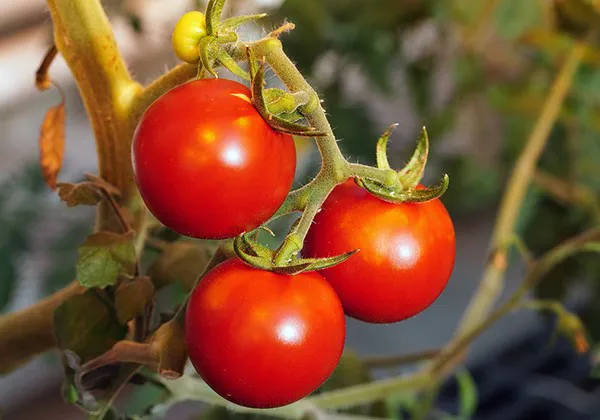Purdue University has received two grants of $1 million each from the U.S. Department of Agriculture’s National Institute of Food and Agriculture for five-year projects to enhance sustainable agricultural systems.
One grant is part of a $10 million project led by Michigan State University’s Brent Ross to develop more resilient food systems for coping with multiple disasters, including pandemics, tornadoes, and flooding. The other grant is part of a $10 million project led by Clemson University’s Raghupathy Karthikeyan to develop a controlled-environment agriculture platform for cultivating salt-tolerant food crops using saline irrigation water.
The grants are in addition to two other $10 million grants to Purdue that NIFA announced earlier this year as part of a $70 million investment in sustainable agriculture that integrate research, education, and extension efforts. One of those grants supports work to improve the economic resilience and sustainability of Eastern U.S. forests. The other grant aims to enhance Midwestern seafood production and consumption.
Leading the extension portion of the MSU project is Purdue’s Maria Marshall, the Jim and Lois Ackerman Professor of Agricultural Economics. Heading the education program development and evaluation portions of the Clemson project is Purdue’s Rama Radhakrishna, professor and head of the Department of Agricultural Sciences Education and Communication.
 Purdue University is collaborating with Clemson University to advance the use of a controlled-environment platform for cultivating salt-tolerant food crops, including tomatoes, using saline irrigation water.
Purdue University is collaborating with Clemson University to advance the use of a controlled-environment platform for cultivating salt-tolerant food crops, including tomatoes, using saline irrigation water.
“This grant is about looking at sustained multiple shocks,” said Marshall, who specializes in disaster recovery for small and family businesses and farms. When she began researching disruptive shocks to families and businesses in 2009, disasters came less frequently. But now they occur continually, and sometimes more than one at the same time.
“You have climate change that is already affecting different parts of the supply chain,” Marshall said. “Now you add COVID on top of that. And then you add, for example, a train derailment. It’s one thing on top of another on top of another.”
Marshall and Renee Wiatt, family business management specialists in agricultural economics, will develop and coordinate the curriculum for farmers that they will deploy as a pilot program in Illinois, Indiana, and Michigan. Serving on the advisory board for this project is Jayson Lusk, a Distinguished Professor and head of the Department of Agricultural Economics.
“We will help translate research at the farm level, and then we will train extension professionals on this curriculum,” said Marshall, who also directs the North Central Regional Center for Rural Development and the Purdue Initiative for Family Firms.
The long-term goal of the Clemson project is to develop a method for hydroponic cultivation of high-value crops using saline irrigation water in North Carolina, South Carolina, and Florida.
“The concept here is how we can grow crops with reduced water intake,” Radhakrishna said. This is important, he noted because even though coastal areas have access to abundant water, all of it is salty. And globally, agriculture accounts for about 70% of freshwater withdrawals, also making it the leading cause of water problems in many regions.
Radhakrishna will help design courses and develop curricula for high school and university students about the value and impact of using the untapped resource of saline water for agriculture.
He also will conduct a needs assessment and stakeholder analysis to identify potential issues the research team may need to address that would hinder the adoption of safe, productive, and sustainable saline irrigation water in coastal areas. In the project’s final stages, Radhakrishna will assess the impact of the project on students, farmers, and other key stakeholders in the targeted coastal regions.
Source: purdue.edu
